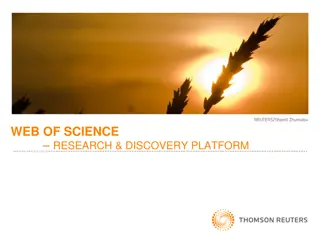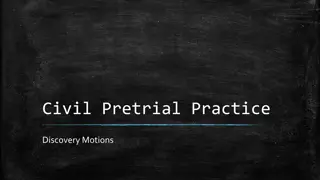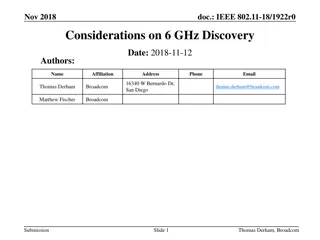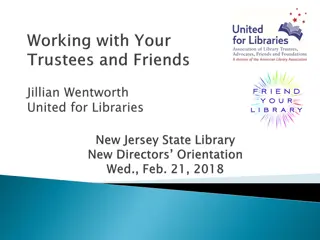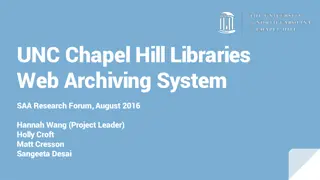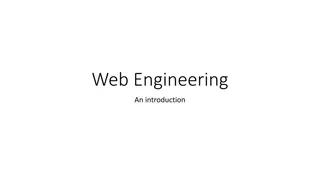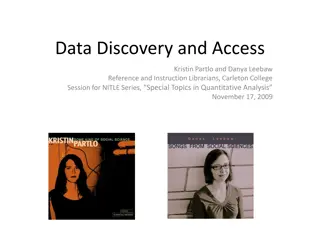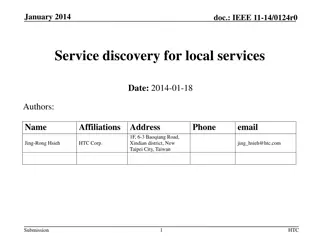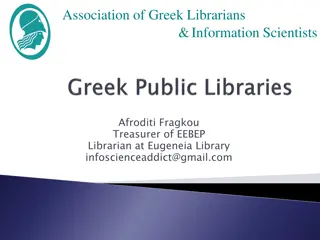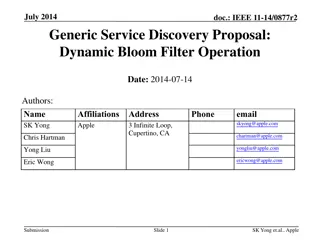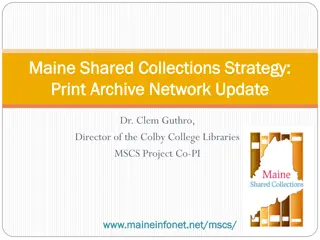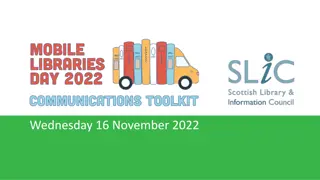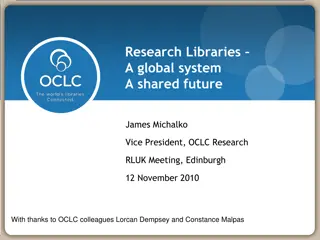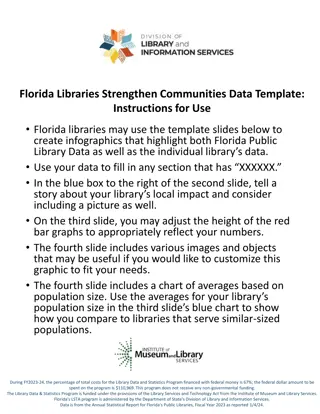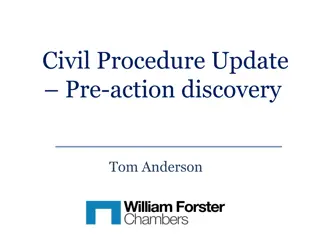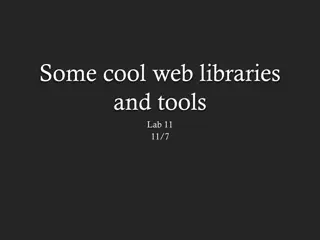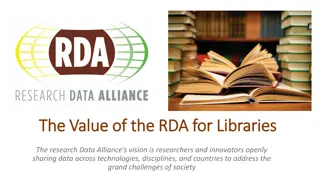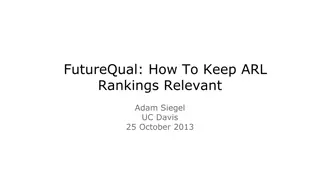Exploring Web Discovery Challenges in Libraries
Dive into the intricacies of web discovery tools with Simon Perry, a Systems Librarian at IT Carlow. Discover the potential limitations in coverage, balancing material types, and the evolving landscape of information access in libraries. Uncover insights on open access, specialized sources, and the quest for a comprehensive digital archive.
Download Presentation

Please find below an Image/Link to download the presentation.
The content on the website is provided AS IS for your information and personal use only. It may not be sold, licensed, or shared on other websites without obtaining consent from the author.If you encounter any issues during the download, it is possible that the publisher has removed the file from their server.
You are allowed to download the files provided on this website for personal or commercial use, subject to the condition that they are used lawfully. All files are the property of their respective owners.
The content on the website is provided AS IS for your information and personal use only. It may not be sold, licensed, or shared on other websites without obtaining consent from the author.
E N D
Presentation Transcript
One Size Fits Small? A Few Thoughts on Web Discovery Simon Perry, Systems Librarian, IT Carlow simon.perry@itcarlow.ie
IT Carlow user of Summon web discovery tool since 2011 Generally well received by library users simon.perry@itcarlow.ie x5766
The Buts. Full-text linking Width/Depth of Coverage Indexing System Stability simon.perry@itcarlow.ie
COST Action MP1302 Nanospectroscopy http://www.cost-nanospectroscopy.eu/ Nanospectroscopy small emerging technology/discipline Requirement for textbook Need to map extant available material to inform textbook content Identify review articles, books, tutorials simon.perry@itcarlow.ie
Information Sources Used Web of Science/Science Direct review articles British Library - books Library of Congress - books Google Scholar/Google - tutorials Summon - books simon.perry@itcarlow.ie
"Some specialized bibliographic sources related to deaf studies, which are important to a significant portion of our campus population, are not covered by our discovery service. But, title by title analysis shows over 95% coverage for traditional library resources. There are limitations in the coverage of nontraditional sources, such as multimedia. "Currently, our digital archives are not included. Areas that are still hard to discover include: Institutional resources like repository, or special collections, reference materials, foreign language, and Multimedia, music or other non-book materials. The other issue with some discovery tools is to maintain a good balance between types of materials, either articles or books. It's not always apparent what the format of the material is Breeding, M., Library Resource Discovery Products : Context, Library Perspectives and Vendor Positions, Library Technology Reports, 01/2014, Vol.50, Iss.1, p. 16-19 simon.perry@itcarlow.ie
Open Access 50%+ of Scientific papers published 2007 2012 available for free download Lower in Arts and Humanities (c. 32%) Archambault , E. et al., (2014), Proportion of Open Access Papers Published in Peer- Reviewed Journals at the European and World Levels 1996 2013, RTD-B6-PP-2011-2, Science-Metrix. simon.perry@itcarlow.ie
BUT Do we have to accept that discovery tools may satisfy most of our users most of the time, but not all users all the time? And that we are permanently stuck in digital limbo between discovery and what else is out there ? Therefore literature searching/information literacy programmes will always have to reflect this. Management of our discovery tools must necessarily emphasise our value- added (known full-text availability) resources. simon.perry@itcarlow.ie
Wishlist Personalisation My [Discovery Tool] saved results, saved searches, personalisation of interface, (facets, resources). Improved discovery of OA and Institutional resources within discovery tools, better indexing/full-text access. Improved information on availability resources from discovery tool vendors about their available resources, (are OA databases full-text?) Improvement in quality of metadata supplied by discovery vendors. simon.perry@itcarlow.ie
What we are witnessing is the gradual demise of the discovery layer as a solution to the problem of ensuring discovery of, and access to, library resources. The ecosystem is simply too complex and too fluid for a discovery layer to keep up. Many proponents of discovery layers as a solution to making vast amounts of library resources discoverable and accessible avoid discussion of metadata, preferring to focus instead on issues like usability, configurability of the interface, etc. While these issues are important, the fact remains that in the absence of an ecosystem that supports and sustains the creation and management of high-quality descriptive, administrative, and technical metadata, discovery layers remain deeply flawed. Any discovery system will only ever be as good as the metadata underlying it. ? Thank You simon.perry@itcarlow.ie




